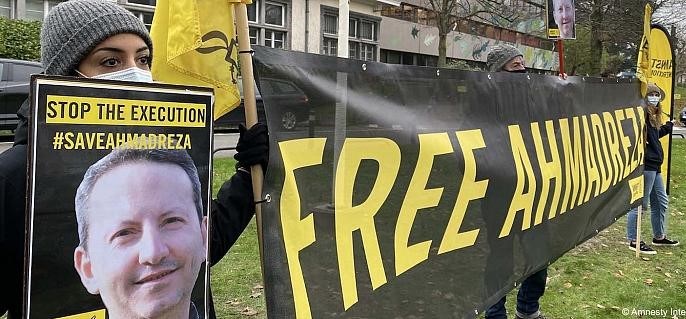The rectors of Brussels’ two universities, the ULB and VUB, have signed a letter addressed to the government calling for rapid action in the case of Ahmadreza Djalali, the Swedish-Iranian academic currently in prison in Iran.
The letter originates with Amnesty International, which fights for justice for prisoners worldwide. It was addressed to Sophie Wilmès (MR), now foreign affairs minister, and Alexander De Croo (Open VLD), her successor as prime minister.
Professor Djalali is an expert on disaster medicine, and was on a visit to Tehran to attend a conference in 2016, when he was arrested and charged with espionage. He was convicted in a trial widely seen as unjust and sentenced to death.
Since then he has been kept in isolation, allowed only infrequent contact with his wife, and according to her subjected to ill-treatment including torture.
The fact that Dr Djalali had been a guest lecturer at the VUB brought Brussels into the campaign, and both the government and the academic establishment have made strong representations to Iran on his behalf.
Now Amnesty has received information regarding his condition, which appears to be worsening in the light of his continued ill-treatment. The letter (FR, NL) to the two senior ministers is signed by Caroline Pauwels, rector of the VUB, and her counterpart at the ULB, Annemie Schaus.
They are co-signed by the directors of the Flemish and French-speaking branches of Amnesty.
“We join in the concerns of Dr Djalali's family and United Nations experts,” the letter reads. We fear that the situation has become untenable. Ahmadreza Djalali is in danger of death as a result of the torture and ill-treatment he suffered, even before his execution.
“Belgium has followed the case closely. You know the story. You know that this man has been in prison for almost five years and that he was sentenced to death after an unfair trial. However, there is not the slightest evidence that he was involved in any crime.”
The letter then reminds the ministers that action on Djalali’s case has been called for by every democratic institution in the country, as well as 100,000 people who signed a petition calling for his release.
“We urge you today to continue and to intensify your efforts, in view of the urgency of Dr Djalali's situation. Only then can we, as citizens and politicians of this country, tell his wife Vida and their children – and hopefully Ahmadreza himself – that Belgium did all it could to save him.”
Alan Hope
The Brussels Times

